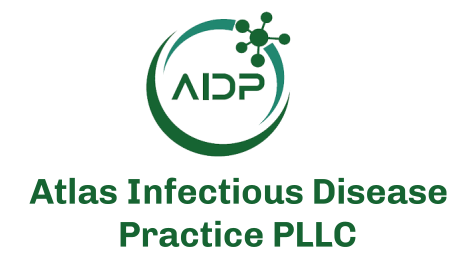Serotypes included in pneumococcal vaccines currently recommended for adults — United States, 2024
Image credits: CDC

A recent update from the Advisory Committee on Immunization Practices (ACIP), published in the most recent MMWR and Morbidity Report, expands pneumococcal vaccine recommendations. This update finalized the guidelines made from October 2024, providing clearer guidance on vaccine preferences, favoring PCV21, removing the need for PPSV23 for those starting with PCV13, addressing cost-effectiveness concerns with a final recommendation on vaccine choice, and more.
Why the Change?
This expansion aims to improve pneumococcal disease prevention in adults aged 50–64, a group at moderate risk. This group is higher than adults aged 19–49 but lower than those aged 65 and older. The new guidelines also seek to address racial disparities in pneumococcal disease, especially in Black and American Indian/Alaska Native (AI/AN) populations, which experience higher rates of infection.
The updated recommendations now advise PCV vaccination for all adults aged 50 and older who have not received the vaccine or whose vaccination history is unknown. For those who started their vaccination series with PCV13, the update specifies that PPSV23 (the 23-valent polysaccharide vaccine) is no longer necessary to complete the series. Instead, these individuals should receive either PCV20 or PCV21 to complete their vaccination.
What You Need To Know
ACIP now recommends pneumococcal vaccination for all adults aged 50 and older who have not received the vaccine or whose vaccination history is unknown.
The PCV21 is now the preferred vaccine due to its broader serotype coverage and better cost-effectiveness compared to PCV20.
The new age-based recommendations replace the previous risk-based approach, making it easier for healthcare providers to implement vaccination across diverse populations.
PCV21 (21-valent vaccine) is now the preferred vaccine, as it provides broader serotype coverage and is more cost-effective than PCV20 (20-valent vaccine). However, in areas where serotype 4 is more prevalent, PCV20 may still be preferred.
Safety data for the PCV vaccines—including PCV15, PCV20, and PCV21—were reviewed in clinical trials and post-licensure surveillance. No major adverse events were identified. However, a low signal for Guillain-Barré Syndrome (GBS) was noted, particularly among Medicare beneficiaries aged 65 and older following PCV20 vaccination. The incidence of GBS remains low.
Economic analyses assessed the cost-effectiveness of vaccinating adults aged 50–64. PCV21 emerged as the preferred vaccine due to its balance of cost and disease prevention, particularly in areas with diverse circulating strains. The update simplifies the vaccination process by shifting from a risk-based to an age-based approach, making it easier for healthcare systems to implement.
The January 2025 update reflects finalized guidance from the October 2024 ACIP meeting and addresses concerns over cost-effectiveness and sereotype coverage. The age-based guidelines are expected to improve vaccination coverage and reduce pneumococcal disease in adults aged 50–64. Simplifying implementation compared to previous risk-based recommendations will make it easier for healthcare providers to offer vaccines in routine clinical settings.






